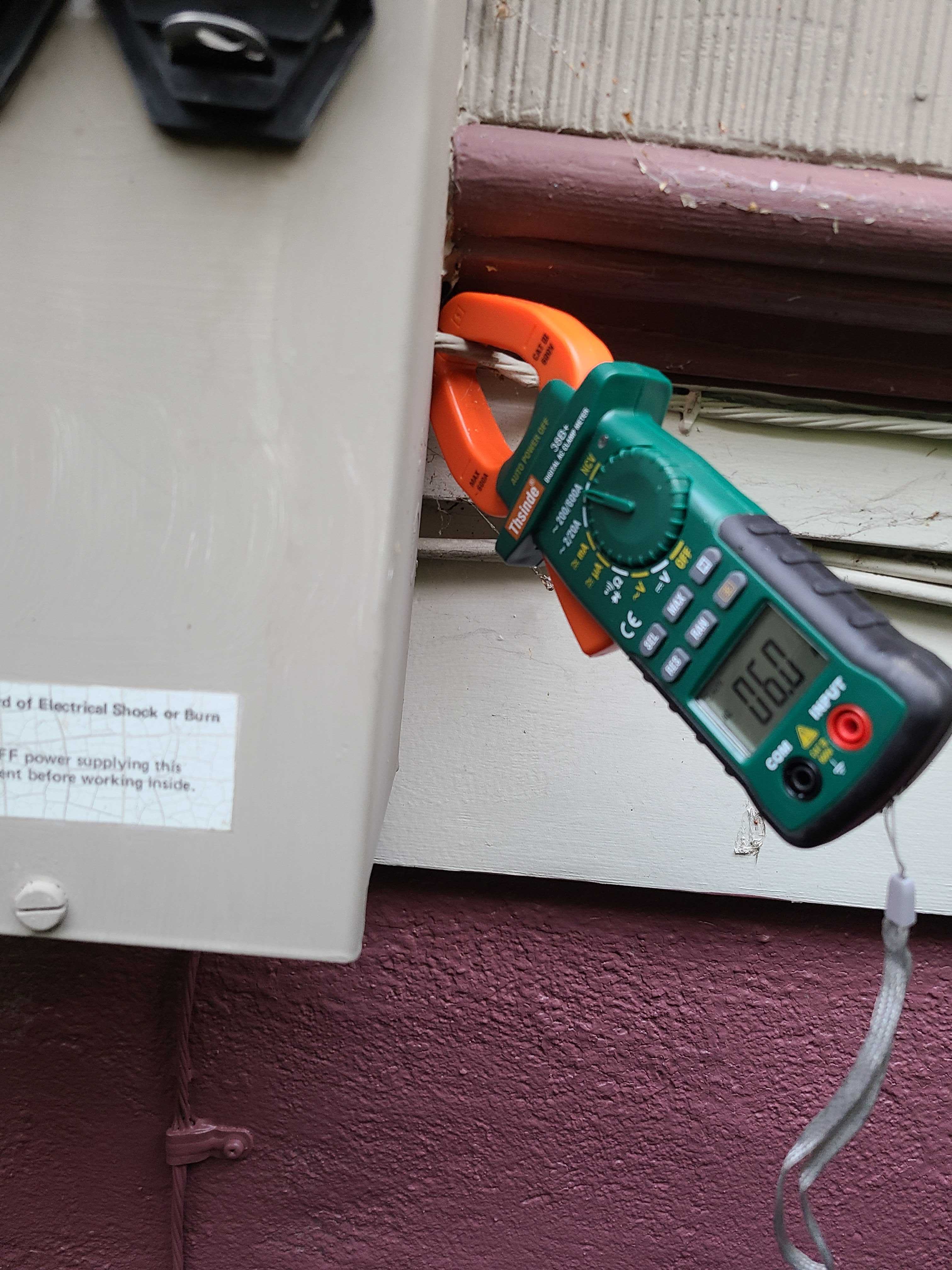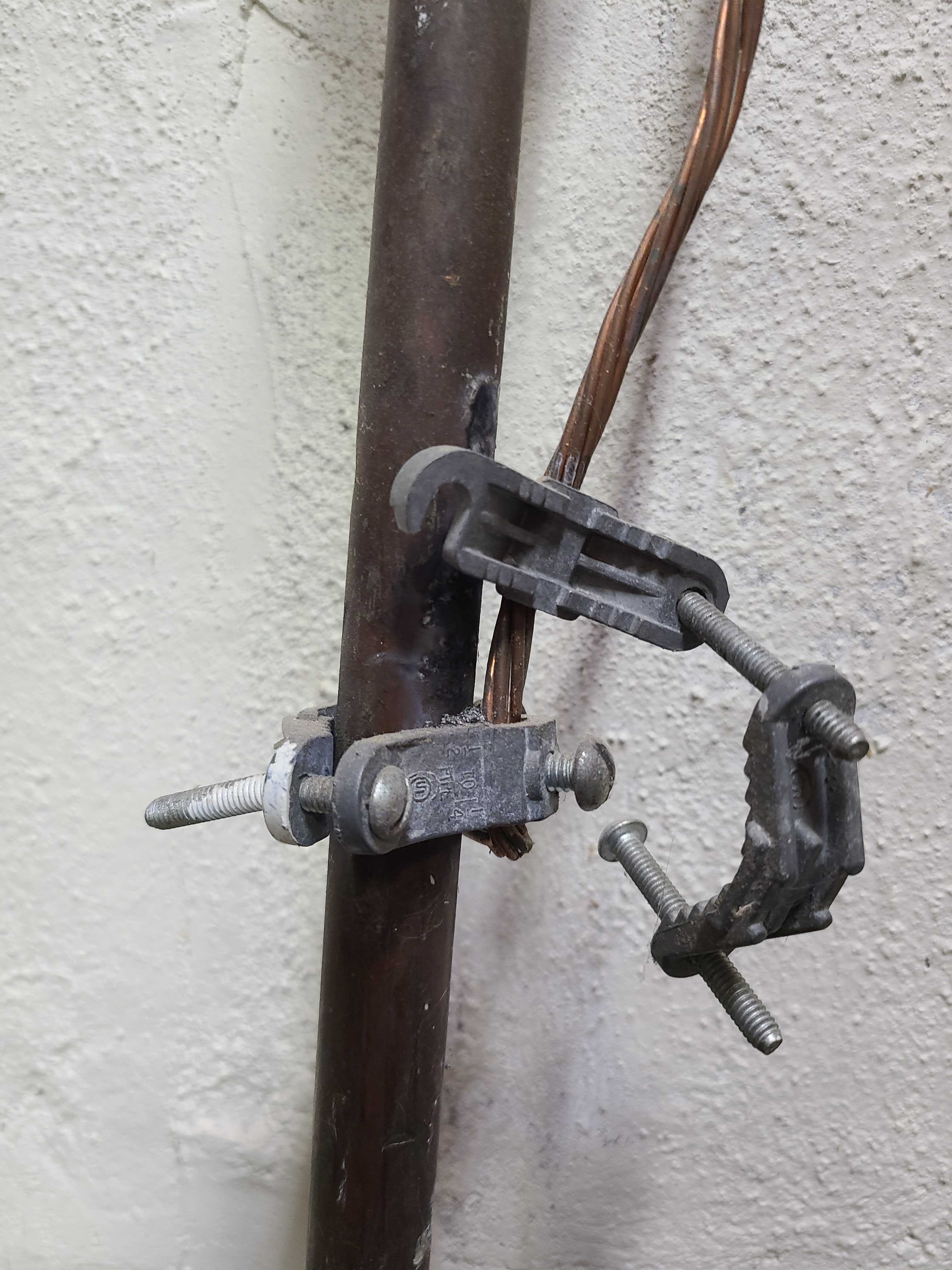When turning on high amp appliances like an air compressor or dust fan, the attachment of the ground from the meter box to the water main (pic) sparks occasionally for a second or so. A separate ground from the meter box was also installed a few years ago by an electrician that runs directly to a ground rod outside.
Is this normal discharge, or does it indicate an underlying issue? If it's normal, should I insulate around the ground to avoid a shock?
Edit: Ground shows current with certain breakers on. Note: There are two grounds coming from the main box. Only one has current.

Update: We're not electrocuted (yet).
POCO came onsite and discovered poorly connected neutral at the city pole byt runnign a load test at the main drop. He reattached it, and the baseline amperage on the ground dropped from 6A to ~.6A immediately. 10x reduction, but still present. Current is now detectable on both the water main and ground rods instead of just the water main.
If I fire up all the power tools, vacuums and heaters at my disposal, I can still measure up to 3A on the ground. This isn't associates with load on any given circuit. It returns to under 1A if I turn off the main and eventually baselines at ~.1 whether or not the breakers are on.
POCO says this is not an issue, but the consensus here and during a 5 min phone call with an electrician says otherwise. Electricians are booked several weeks out unless we pay emergency rates at $770 + 300/hr. Electrician also said all he'd do at this point is repro my circuit by circuit test.
On an editorial note: Thanks to everyone for the suggestions and concern for our safety. DIY has its limits.

